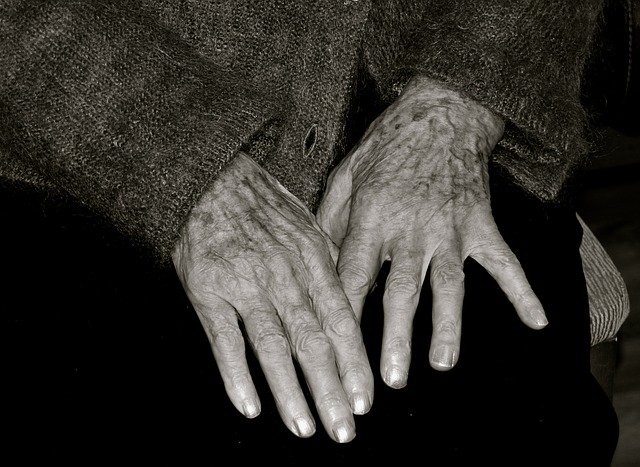Here At Home
– Nonfiction by Stacey Curran –

When my grandmother died, my mother reported that her last words were: “Is that all?”
Although I was not present at her death, I doubted this. I was only 13-years-old and thus not allowed at the end, but I was skeptical. My grandmother could barely talk the last time I’d seen her, nearly a week before her death from cancer. Also, my grandmother was fanciful and soft. She was child-like. She turned empty oatmeal canisters into toys, had drawers full of string cut from bakery boxes “just in case” and taught me to press violets in the pages of favorite books. My grandmother was not a sad-last-words kind of person.
I eventually asked my mother about these last words, careful not to sound doubtful. My mother was quite unlike my grandmother. Although she’d be frequently silly and sometimes playful, she was not dreamy and gentle. I feared a grief-propelled response. But the sharp retort never came. She gulped out an answer, “I think she was sad she never got to Ireland.”
My grandmother’s parents were both Irish immigrants, who lived in neighboring counties of now-Northern Ireland. But they didn’t meet until they were in Lawrence, Massachusetts, in the 1880s. My grandmother talked as though she’d lived there. Both her parents had strong brogues and traces were in her speech. She sang Irish songs, listened to Irish music, served cake on plates brought from “home.”
Determined to make the journey her mother couldn’t, my mother went to Ireland. My sister was in school near Dublin and my family went at Thanksgiving. It was not my first trip there, but I was still unprepared for the November weather. It was colder and far gloomier than the other times I’d been. My mother was shocked. She got ear aches in windy streets. She complained about the dampness. She railed about low flush toilets. She grimaced at some of the food. She had fun along the way, but it was obvious that she did not feel at home.
Home is an oft-treasured feeling as much as it is a tangible place. My mother loved home. She wanted to keep her childhood one, but she was forced to sell it for her father’s care. She lost our family home when my parents’ marriage ended. As she broke up her homes and condensed things, she attempted a smaller home. But that fell apart too. She began to show memory loss and confusion. We made lots of jokes and clung to denial, but we eventually saw what was coming. Then, my mother made me swear I’d never “put her in a home.”
She even made me promise this when she was “in a home.” She’d said it so often it became part of her script, grooved into her conversational record. Completely unaware of her actual physical location, we went other imagined places. Some days, we’d listen to Elvis and I’d say we were going to a dance. Other times, we’d listen to the ocean and I’d pretend we were at the beach. But her favorite times were when my husband would visit too, and we’d tell her we were going to Ireland. We’d shuffle into the parking lot to our car, near some ledge and patches of green grass. She’d sit in the passenger seat and we’d blast Irish music from the speakers. She remembered my husband and I had been in Ireland with her, but forgotten she was mad at him for losing the TV clicker in 1997. She forgot how annoyed she was when I got Silly Putty stuck in the new rug in 1974.
Dementia had taken most of my mother. Her quick wit, memories, grudges, names, her very location, were lost to her. But she was softened. Now she loved Ireland. Now we were wonderful. Now she was child-like and now she was fanciful. Dementia left her only her ability to love and to laugh. And so even when she was in a parking lot – with us – she was home and that was all.
About the Author – Stacey Curran

Stacey Curran decided to be a writer in fourth grade, because her teacher told her she was good at it. She has been a journalist, a middle school teacher, and now works in higher education. She is a New England Press Association award winner, whose work has been in The Boston Globe Magazine, The Eagle Tribune, The Berkshire Eagle, several weeklies and an anthology. She writes poetry, essays and swears some day she will finish a novel. She is a slow runner who lives in Massachusetts.
Did you like this personal essay by Stacey Curran? Then you might also like:

2024 Micro Nonfiction Story Writing Contest Results
Congratulations to the winners of the 2024 Dreamers Micro Nonfiction Story Writing Contest, for nonfiction stories between 100-300 words.

2024 Place and Home Contest Results
Congratulations to the winners of the Dreamers 2024 Place and Home Contest, based on the theme of migration, place & home.
To check out all the nonfiction available on Dreamers, like this piece by Stacey Curran, visit our nonfiction section.
Like reading print publications? Consider subscribing to the Dreamers Magazine!